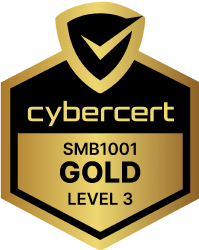You may have heard the term 'M2M' or 'Machine 2 Machine' SIM cards. These devices help businesses across the UK to reduce their costs and increase their efficiency, but what are they?
What are Machine 2 Machine SIM Cards?
A Machine 2 Machine SIM, sometimes referred to an M2M SIM, is a SIM that enables communication between two devices using an internet connection.
Typically, these devices connect to the UK’s cellular network, allowing them to send a receive specific data to other devices, web servers and more. The Machine 2 Machine SIM connects to the strongest available network and begins transmitting information to a chosen destination over the internet.

Machine 2 Machine communication goes across something called the ‘Internet of Things’ (often shortened to IoT). The IoT is unlike the regular internet because it comprises mostly of code and secure networks which connects devices to one another.
The IoT is one of the fastest growing technologies, and is increasingly being used by SME’s across the UK, as the technology helps dramatically reduce overheads and running costs.
Machine 2 Machine communication is not a new invention, but over time is has developed into a solution that many businesses rely on.
What is M2M used for?
Machine 2 Machine is normally used by businesses to reduce their overall costs. This is typically achieved by reducing the number of staff needed to monitor or control a machine.
A good example of M2M is Prolectric, who use M2M to remotely monitor their solar lighting towers. Each lighting tower has an M2M SIM card inside it. This SIM sends vital information back to their head office, where a team can actively monitor and diagnose the lighting towers remotely, without the need for an engineer to visit site.
Using Machine 2 Machine has helped them reduce their costs dramatically, especially as they continue to expand their business as don’t need to invest heavily in lots of field engineers.
How do Machine 2 Machine SIMs Work?
As we mentioned before, Machine 2 Machine uses the Internet of Things to send and receive data between devices. These devices have an M2M SIM card that connects to the strongest available network in the area.

As you can see, once the SIM has connected to the strongest available network, it can send and receive data between the machine and the web server or device. This data is sent over a secure Machine 2 Machine network.
Once the data has been received, it can be interpreted, stored, extrapolated and manipulated to give the end user a view of the machine. This gives great visibility of any machine, and helps reduce business running costs by centralising their diagnostic and data gathering efforts.
Other forms of M2M communication also allow for code to be sent to the machine from a remote location, allowing the end user to effectively control the machine from a completely separate geographical location.
Applications of M2M SIMs
Machine 2 Machine SIM cards can help your business reduce costs and improve efficiency, but exactly which sectors can benefit most from M2M?
1. Renewables
We mentioned before that Prolectric are using our Machine 2 Machine SIMs in their solar lighting towers, and they’re not alone. Renewables are a fast growing industry, and using M2M and the IoT, businesses are able to connect their renewable energy sources to the internet to remotely monitor, control and even diagnose any issues if they occur.
M2M SIMs are a simple solution that many renewable energy companies are using to help reduce their running costs.
2. Healthcare
Healthcare industry has been at the forefront of technology in the past decade, optimising and streamlining their workflows and helping patients using M2M technologies. Businesses and public sector organisations such as the NHS are utilising M2M for remote patient monitoring, with Machine 2 Machine SIM cards transmitting data between patient vital monitoring and the doctors and nurses on call.
Machine 2 Machine SIMs are also being used to help speed up patient wait times and eliminate inefficiencies. With data collected over the IoT from these M2M devices, healthcare providers can make informed, data-driven decisions about patient care.
3. Automotive
Machine 2 Machine technology is already in use by many automotive firms across the UK. With so-called ‘black boxes’ becoming increasingly common. Inside these black boxes are M2M SIM cards, which send data about the car back to a centralised server—where the data is collected and can be actively monitored in real time. Another use of M2M SIMs is for GPS tracking of vehicles.

Some more modern cars also have M2M capabilities built right in. With connected cars and mobile apps such as Tesla, Mercedes Me and BMW ConnectedDrive all using M2M and remote control technologies to allow you to remotely access certain features of your vehicle.
4. Smart metering
If you have a smart meter in your house, you’re using the IoT without even knowing it. A lot of smart meters have a Machine 2 Machine SIM card inside them, which is feeding information about your energy usage back to your providers HQ. This helps the energy companies reduce expenditure on engineers visiting sites to take readings.
Smart meters aren’t just used to measure electricity or heating. They’re used across a whole range of sectors and industries—from manufacturing plants monitoring production line machinery, to construction and more.
Machine 2 Machine SIM cards could help save your business thousands, and reduce your inefficiencies. For more information, press the online quote button below.






